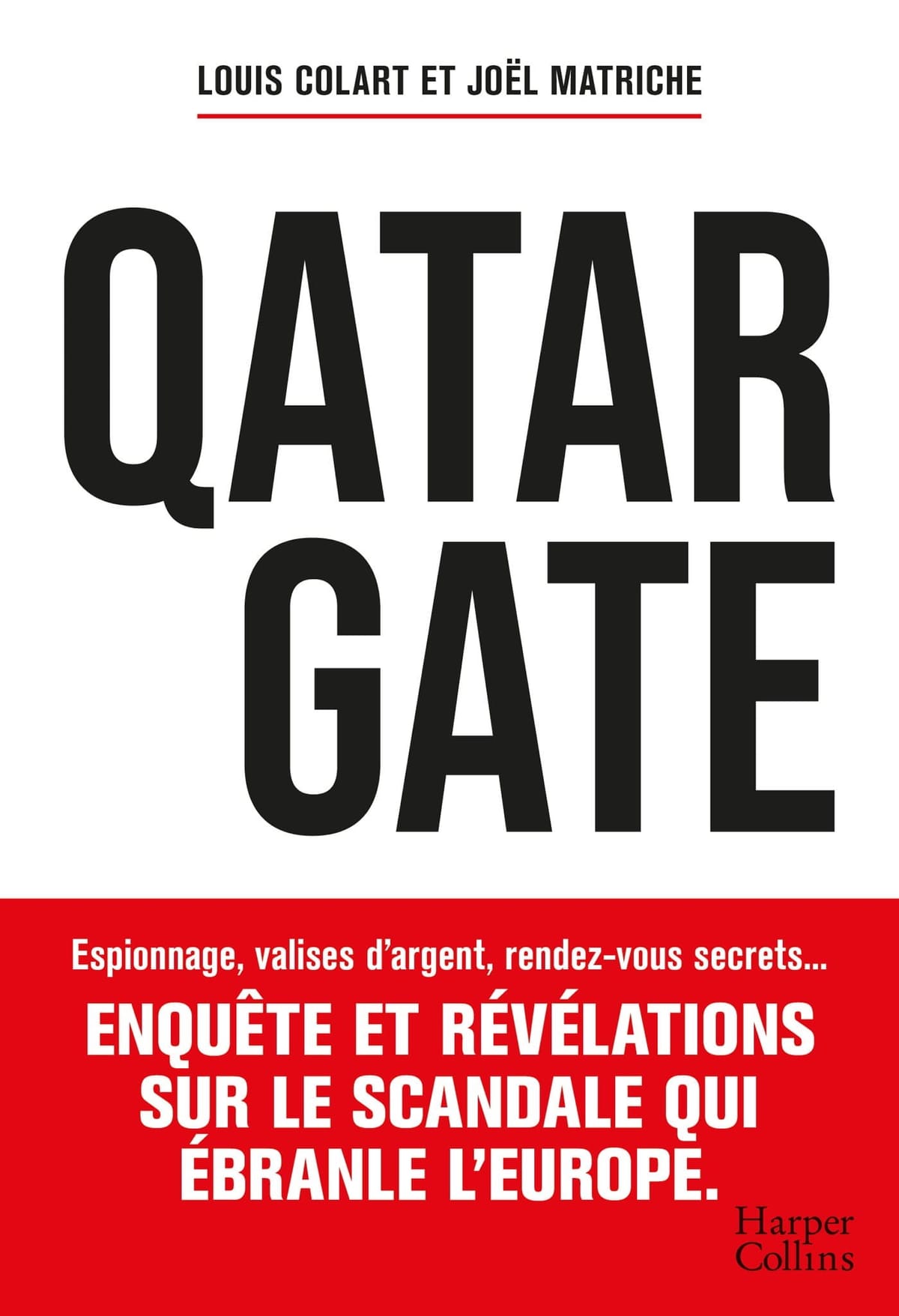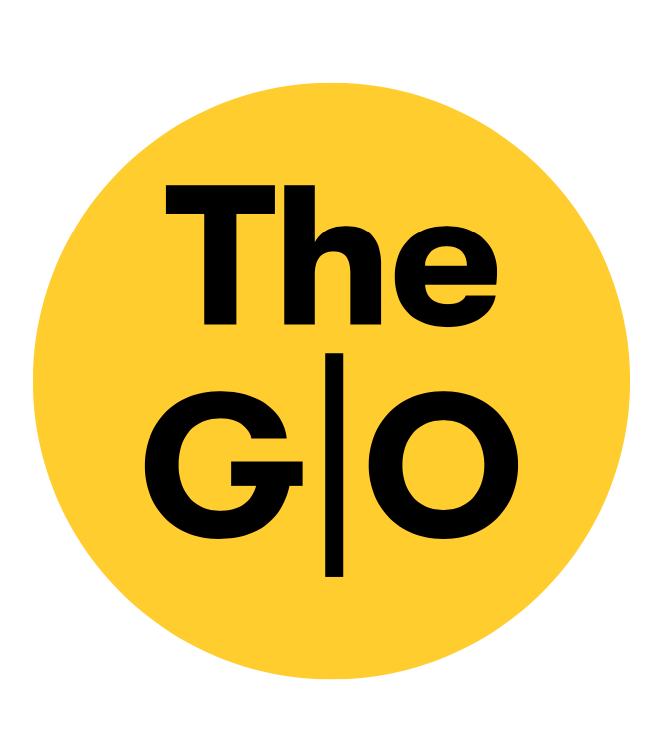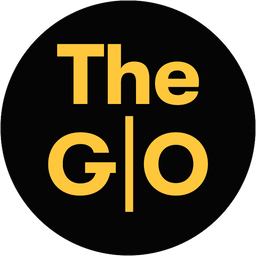#182 THE G|O BRIEFING, MAY 30, 2024
Farewell from the G|O | Dismay Among Ukrainian and European Trade Unions Over Putin Supporter's Election Bid to ILO Governing Body | The Unfinished Journey of Palestinian Statehood | Maxims for the AI Age
Friends,
We hope you are well.
Today in the final Briefing from The Geneva Observer—more about that below—we report on the profound dismay within the European labour movement as a representative of the state-controlled Russian Trade Union Federation supportive of Vladimir’s Putin war on Ukraine may be poised for election to the ILO’s Governing Body. Plus, in his continued observations about the war in the Middle East, Daniel Warner has a final Op-Ed for us on Palestine’s arduous journey to statehood. Lastly, with the excitement around the ITU’s AI for Good Summit, we have an AI-related guest essay by LinkedIn’s co-founder Reid Hoffman.
But first:
The Last Geneva Observer Briefing
This will be the final Geneva Observer Briefing to arrive in your inbox. Four and a half years since we published our first piece and ten months after our move to a reader-funded model, our diminished financial resources have unfortunately made it impossible for us to continue bringing you our exclusive stories and analysis.
Last year’s transition from a free model to a subscriber-based one, after losing funding from two foundations, proved challenging. We embraced the risks wholeheartedly, as readers’ subscriptions are the best guarantee of complete editorial independence. To our paying subscribers and those who have generously donated to The G|O, we extend our deepest thanks. Your trust and support have been inspiring. Like us, you believe holding international organizations and other global actors to account while also recognizing their achievements, and shedding light on how the multilateral system endures under unprecedented stress was a worthwhile and necessary journalistic effort. But in the end, unfortunately, the financial math just didn’t add up.
Launching The Geneva Observer, publishing over 180 weekly Briefings and 800 stories with a limited budget, has been an exciting journalistic adventure for me and our small team: From the onset, Brazilian journalist and senior writer Jamil Chade brought an important Global South perspective to our work. Regular contributor Stephanie Nebehay’s unmatched knowledge of International Geneva informed her rigorous reporting focusing on human rights. Daniel Warner, our in-house op-ed contributor, kept challenging us with his stimulating essays. Dan Wheeler, our faithful editor, became a master at spotting the odd formulations of our non-English mother tongues and helped to make our often-complex stories compelling. Our researcher David Jenny was a magician at finding phone numbers, email addresses and documents at warp speed. To all of them, my enduring thanks and recognition. I am extremely proud of our team’s achievements over the past four years. Thank you, our readers, for having been part of our community.
So, it’s time to move on. New projects are calling. For me, a much-delayed book is in the writing. In the next few weeks, I will also start publishing a newsletter on the US presidential elections for our French-speaking readers with Le Temps’ Stéphane Bussard. It will be a serialized sequel to our 2016 book #Trump: De la démagogie en Amérique. Stay tuned.
Wishing you all the best,
Sincerely,
Philippe Mottaz
Anger and Consternation within European Trade Unions: Will Russian Union Representative Supportive of Vladimir Putin’s War Effort and Repression Be Elected to the ILO’s Governing Body?
By Philippe Mottaz
The possible election on June 10 to the International Labour Organization's Governing Body of a representative of the Russian Federation of Independent Trade Unions (FNPR), a state-controlled organization allied with Vladimir Putin, has sparked an acrimonious debate within the labour movement. Ukrainian trade unions, together with a number of their European counterparts, are concerned that the election of the FNPR candidate for the Workers’ Group of the ILO’s Governing Body—the UN organization's executive organ—could deal a blow to the credibility of the global labour movement and the ILO itself.
Seats on the workers’ benches of the Governing Body are to a large extent allocated by the Brussels-based International Trade Union Confederation (ITUC), the world’s largest trade union body, after a consultation process with its regional organizations. According to an internal ITUC report obtained by the G|O, Esther Lynch, General Secretary of the European Trade Union Confederation, opposed the ITUC’s proposal to leave a place open on its list “that could potentially be filled by a candidate from the FNPR.” In a letter to the ITUC, the Nordic Council of Trade Unions, which represents unions in Scandinavian countries, says this eventuality would be “unacceptable.”
Ukrainian and European trade unions also denounce what they consider to be a misguided posture of accommodation towards Russia and other governments opposed to workers’ rights from the leadership of the International Trade Union Confederation (ITUC) and some of its non-European members in Latin America and elsewhere.
Some of the global union federation’s harshest critics privately contend that, since his election following the “Qatargate” money-for-influence scandal, the ITUC’s Secretary-General Luc Triangle has adopted a strategy that privileges access over substance, in his quest to have the ITUC contribute to the “revival of multilateralism,” according to internal documents seen by The G|O.
A well-connected ILO watcher expressed to me the view that “[i]n the FNPR case, the ITUC leadership has shown yet another sign of its weakness. While not supporting the FNPR’s candidacy, it didn’t outright oppose it. We already saw that pattern with Qatar: a loud promise to defend the migrant workers’ rights only to end up supporting an agreement between the ILO and Qatar, a country that still forbids independent unions.”
The FNPR Flashpoint
The ITUC suspended its affiliation with the FNPR following Russia’s full-scale invasion of Ukraine, and decided not to include the Russian trade union in its list of workers candidates to the Governing Body. Nonetheless, European and Ukrainian trade unions remain highly critical of the ITUC senior leadership for not opposing the FNPR candidate unequivocally. “The ‘trade union’ of Vladimir Putin’s genocidal regime has no place on the ILO’s Governing Body,” wrote the Ukrainian trade union official Vasyl Andreyev in an opinion piece in Swiss daily Le Temps, which first broke the FNPR story. “We fight every day with our work and with our lives to defend democracy, human, social and trade union rights for a just peace and for freedom in our country and throughout Europe, against the aggression of Vladimir Putin's fascist regime. We are currently confronted with a proposal, supported by [the ITUC] General Secretary to include in the ILO’s Governing Body a trade union confederation which supports Vladimir Putin. We call on the ITUC leadership to understand this point: [An] organization as complicit in war crimes as the FNPR [cannot be] represented on the Governing Body of the ILO.”
“The FNPR gave a standing ovation to Putin at a recent meeting. It openly supports his war effort and repressive campaign in Donbass and in Ukraine. Vladimir Putin is under indictment from the International Criminal Court. The situation is absolutely unprecedented, and the question of this election is a clear red line for us,” Luca Cirigliano, the Swiss Union Confederation’s Central Secretary told me, stressing that “this is not an election to some technical commission but to the ILO’s highest organ.”
To fully understand the uproar created by the situation and its stakes for the international labour movement, it is important to keep in mind the unique tripartite governance model of the ILO, composed of governments, workers, and employers. The Governing Body (GB) is the organization’s executive body. According to the ILO’s website, “it is composed of 56 titular members (28 Governments, 14 Employers and 14 Workers) and 66 deputy members (28 Governments, 19 Employers and 19 Workers). Ten of the titular government seats are permanently held by States of chief industrial importance (Brazil, China, France, Germany, India, Italy, Japan, the Russian Federation, the United Kingdom and the United States), while the other Government members are elected by the Conference every three years. […] The Employer and Worker members are elected in their individual capacity.”
Should the FNPR representative be elected, it would, labour experts and activists say, potentially modify the GB’s dynamics. The ILO constitution requires that workers (and employers) be represented by genuinely independent organizations. However, if “state-controlled trade unions are allowed to play an important at the ILO,” as in the case of the FNPR, “tripartism becomes a farce,” explains Frank Hoffer, a former German ILO official now associated with the Global Labour University.
New Geopolitical Realities are also Shaping the Trade Unions Conversation
Interestingly, the FNPR episode also illustrates how, beginning with the rise of the BRICS and a more self-assertive Global South, new geopolitical realities are increasingly shaping international organizations. “Some democratic trade unions have closer contacts with the Russian trade unions through the BRICS Trade Union Forum and seem to be inclined to vote for a Russian representative. For quite different reasons, the BRICS countries and the trade unions of these countries have sympathy for a multipolar world[,] and a critical view on the dominant global financial institutions and the hegemonic role of the rich industrialized countries,” analyzes Hoffer.
But for many in the trade union world, an ideological aversion to the US and other rich economies is a poor reason to justify support for countries like Russia and others that oppose everything the trade union movement is supposed to stand for. They are concerned by the ITUC strategy as expressed in a 2023 internal document: “Our determination to rebuild multilateralism implies the participation of all trade union forces in all countries, including the state-controlled ACFTU in China and the FNPR in Russia, whether or not these organizations are affiliated to the ITUC. It will also be necessary for the ITUC to take part in the next meeting of BRICS+ labour and employment ministers in Russia. Not to do so would contribute to accentuating geopolitical divisions and putting an end to multilateralism.”
“This is a controversial path. From a workers’ rights perspective, reviving multilateralism shouldn’t be about offering new spaces of action and influence to totalitarian or authoritarian countries that stand against every value embodied by labour,” a trade unionist privy to the ITUC and ILO debates told me. “It would only weaken the credibility of the union movement, of the ILO, and democracy itself.”
Will the FNPR candidate be elected on June 10? A candidate needs to get 50% of the delegates votes, and elections are conducted by secret ballot. Only Workers’ delegates can vote for Workers’ representatives on the Governing Body. What will be the score of the Russian FNPR candidate? Could he stumble? Will Vasyl Andreyev, the Ukrainian candidate who enjoys the support of the ITUC, be able to rally a significant majority behind his candidacy? “By giving the FNPR the opportunity to put forward their candidate, the ITUC creates a moment of truth,” says Frank Hoffer. “It exposes the FNPR, and therefore Putin’s regime, to a vote at the ILO. A vote they should not win.” For other ILO watchers, this election will also serve as a test of the ITUC’s current leadership and strategy.
-PHM
Ukraine: ITUC solidarity visit
An ITUC delegation led by General Secretary Luc Triangle has been in Ukraine to reaffirm the global trade union movement’s support of workers and their unions in the country.
The group included Christy Hoffman (General Secretary UNI-Global Union), Atle Hoie (General Secretary, IndustriALL Global Union) and Paul Nowak (General Secretary TUC-UK).
Luc Triangle said: “We are in Ukraine to reaffirm that we all stand in full solidarity with the Ukrainian people. The brutal and illegal invasion by (...)
P.S.

The Financial Times has a new podcast, Untold: Power for Sale, about the Qatargate money-for-influence scandal. In Geneva meanwhile, despite much trumpeted progress by the ILO and the ITUC following the extension of a cooperation agreement program paid for by Doha, Qatar has failed to register a credible Workers’ delegation to the upcoming International Labour Conference. Informed sources told me that, unsurprisingly in a country that forbids unions, the Gulf state’s “Workers” delegate happens to be a Senior official of Qatar Energy. The government delegation is still led by Minister Al-Marri, presented by Belgian authorities as the key player in Qatargate. Presumption of innocence, however, applies.
Related content from the G|O's archives:


Op-Ed: The Unfinished Journey of Palestinian Statehood
By Daniel Warner
On May 22, Palestine was recognized as a state by Norway, Ireland, and Spain, bringing the number of countries recognizing Palestine’s statehood to over 140 of the 193 members of the United Nations. And yet Palestine is still not a legal state.
Moreover, the current political consensus is that the best solution to the Israel/Palestine conflict is a two-state solution, and back in 2016, the UN Security Council reaffirmed support for a two-state solution based on the 1967 borders. But in order to have a two-state solution, there must be two states. Why hasn’t full Palestinian recognition happened?
The United States accepts the theoretical two-state solution but at this point rejects Palestinian statehood. Following the recent recognition of Palestinian statehood by the three countries, “a US official familiar with the discussions stressed that Washington had made clear to the three […] that recognizing a Palestinian state would not be useful,” Politico reported.
Several European countries, including major powers like France, have also been hesitant to recognize Palestine, arguing that important conditions have not yet been met. “[Recognition of Palestinian statehood] must be useful, that is to say [it must] allow a decisive step forward on the political level,” French Foreign Minister Stéphane Séjourné said in a statement. “France does not consider that the conditions have been met to date for this decision to have a real impact on this process,” she added.
Recognizing Palestine is not “useful”? It won’t “have a real impact”? The Spanish prime minister disagreed. “Recognition of the state of Palestine is not only a matter of historic justice[, …] it is also an essential requirement if we are all to achieve peace,” Pedro Sanchez explained.
There is no formal legal process by which statehood is established; a state exists through statements and decisions made by other states. Political entities may announce their own statehood through declarations—a form of self-determination—but this in itself is not sufficient for statehood. The recognition of statehood depends on others—or to put it another way, “you are as others see you.”
For example, in February 2008, the Kosovo Assembly declared Kosovo’s independence as the Republic of Kosovo. That status is recognized by seventy-four members of the United Nations. Yet, the Republic of Kosovo is not a universally recognized legal state. In fact, several countries have said they will never recognize Kosovo as a state, including Serbia, Russia, Argentina, Cuba, Vietnam, North Korea and Libya.
State recognition is a political decision. Although an entity may have what is necessary to be considered a state—people, territory, government and sovereignty—it is the political decision of other states that allows a state to be officially recognized.
The most obvious avenue to formal recognition is through the United Nations. Following a 1988 Palestinian Declaration of Independence which was recognized by more than seventy countries, Palestine applied for UN membership in 2011. The UN General Assembly (UNGA) voted in 2012 to upgrade Palestine’s status from “observer” to a “non-member Permanent Observer State,” like the Holy See, but no more. (The upgrading happened on the same day, according to UN News, “that the UN observed the annual International Day of Solidarity with the Palestinian People. Established in 1977, the Day marks the date in 1947 when the Assembly adopted a resolution partitioning then-mandated Palestine into two States, one Jewish and one Arab.”)
Recent attempts to grant Palestine full UN membership and legal status have accelerated as a result of Israel’s overwhelming reaction to the October 7 Hamas attack. The UNGA adopted a resolution in early May declaring that Palestine qualifies for full-member status at the United Nations, by a vote of 143 to 9 with twenty-five abstaining. “The vast majority of countries in this hall are fully aware of the legitimacy of the Palestinian bid and the justness of their cause,” declared the UAE Ambassador Mohamed Abushahab at the time.
But full membership of the United Nations goes beyond a General Assembly decision; it needs approval by the Security Council, with its five permanent members having veto power. In April this year, as it has done in the past on issues involving Israel and Palestine, the United States exercised its veto on a vote to recognize Palestine as a full member. The US was the only member who voted against the proposal, with twelve votes in favor and two abstentions from Britain and Switzerland.
Why the US veto? US National Security Advisor Jake Sullivan presented President Biden’s position on Palestinian statehood following the recent statements by Norway, Ireland and Spain: “[Biden] has been equally emphatic on the record that the two-state solution should be brought about through direct negotiations through the parties, not through unilateral recognition,” he said. “That's a principled position that we have held on a consistent basis.”
According to the United States, therefore, Palestinian statehood will only be recognized after direct negotiations between the parties. Negotiations between which parties? Sullivan did not elaborate on who will directly negotiate, and under whose authority Palestinian statehood will happen.
“You are as others see you” lacks a definition regarding the “others.” The recognition of statehood is based on politics, privilege, and positions of power. The United States alone can block Palestinian UN full membership and statehood. This is neither democratic nor objective. Will the new dynamic, favoring Palestine in light of Israel’s horrific aggression, overcome the United States’ position? As the former Swiss Ambassador to Israel Jean-Daniel Ruch perceptively observed: “a two-state solution remains desirable and is technically feasible,” but, despite the new dynamic, “the political will to make the brave and risky investments to open a genuine peace perspective is nowhere as massive as it should be.”
-DW
Maxims for the AI Age
By Reid Hoffman*
Debates about technology have increasingly been reduced to stark dichotomies. Artificial intelligence should be curtailed, or it should be accelerated: thesis and antithesis, but no synthesis. Rather than picking a side, we should consider alternative rallying cries that place the focus where it belongs: humanity.
To that end, I propose six maxims. The first is a famous quip from the Carthaginian general Hannibal: “I shall either find a way or make one.” With AI still at a very early stage, we have barely scratched the surface of its potential. AI can help us find paths that we couldn’t see before, and it can help us make new ones through the force of human creativity. Tools like ChatGPT, Copilot, and Pi are trained on material by and about people. Far from replacing us, they extend us.
Imagine finding a previously indiscernible thread of insight that runs through Gödel, Escher, Bach, Caravaggio, Rousseau, and Vivaldi; or a thread tying together the ingredients you just happen to have in your kitchen. A vast collection of human creation and past contributions hangs before us like an expanding tapestry, and we now have the tools to do more with it than any previous generation ever could.
The second maxim is: “We are symbols, and inhabit symbols.” That is how Ralph Waldo Emerson described our use of language to comprehend, explain, and shape the world. We humans have always relied on tools, and that is what symbols are. They enable us to create things that did not exist before and do not occur naturally. Consider the griffin, with the head and wings of an eagle and the body of a lion. It is a human creation that reflects some reality we want to see in the world. Humans created griffins for uniquely human reasons. AI is no different.
True, many imaginative creations – from Mary Shelley’s monster in Frankenstein to James Cameron’s killer cyborg in Terminator – are meant to be cautionary. We naturally feel fear when initially encountering “the other” or “the new.” But the griffin reminds us that we can convert fear into a sense of majestic possibility. Ultimately, humans are both the creators and the products of their symbols, culture, environment, and decisions. Together with AI, we can create more griffins.
The third maxim is to build cathedrals, as these ennoble our efforts and turn mere groupings of humanity into fellowships. Actual cathedrals are some of humankind’s most awe-inspiring creations, making it only fitting that we now refer to missions like the Apollo moon landing as “cathedral projects.” How great would it be if these were as much a part of our everyday lives as cathedrals are in European cities?
Such projects require many sets of hands, working in concert across regions, disciplines, and sometimes even generations. As the writer and aviator Antoine de Saint-Exupéry wrote, “A cathedral is built with stones; it is made up of stones; but the cathedral ennobles each stone, which becomes a cathedral stone.” Scientific discoveries and technological innovations are stones in the cathedral of human progress.
The stories of the telescope, the radio, the car, the elevator, the airplane, and – now – AI follow a similar pattern. While many know AI through recent commercial applications like ChatGPT, it took generations of innovators and inventions to get us to this point. We need grand projects – born of both cooperation but also some healthy competition – to give us a sense of direction. How we design and build our cathedrals tells us who we are, and who we want to be.
The fourth maxim is that we must take small risks to have any hope of navigating the big ones. Rather than trying to eliminate risk altogether – which is impossible – we ought to welcome challenges that could bring failure, because these create opportunities for iteration, reflection, discussion, and continual improvement.
Recall the economist Hyman Minsky’s great insight about financial crashes. He saw that “stability” can create its own form of instability. Too many safeguards in a financial system can make it more brittle, and the appearance of safety means that nobody will be prepared when it breaks.
The same lesson applies to AI regulation. Not only should we incentivize innovation; we should recognize that experimentation – taking smaller risks – is itself a risk-mitigation mechanism. Ultimately, we will get better regulation when these technologies have been deployed widely, allowing more people to try them out and integrate them into their lives. This, too, will be a shared undertaking, involving government, the private sector, the press, academia, the public – all of us.
The fifth maxim is that technology is what makes us human. If we buy into the notion that AI is the antithesis to humankind’s thesis, we will anticipate a future of half-human, half-machine cyborgs. But that is not really how it works. The combination of thesis and antithesis leads not to a crude mashup, but to a new thesis. The two evolve together, and the resulting synthesis, in this case, is a better human.
Moreover, AI may help us become more humane. Consider how responsive, present, and patient conversational AI models and chatbots can be. These features could have a profound impact on us. Not everyone has reliable access to human kindness and support. But when such resources become readily available, that will improve many people’s own capacities for kindness and empathy. And empathy can beget empathy. I think this dimension of AI’s potential has yet to be fully appreciated.
The sixth and final maxim is that we have an obligation to make the future better than the present. Imagine a personalized digital doctor or tutor in everyone’s pocket. What are the costs of that happening later, rather than sooner? Speed is a virtue when it comes to technology, given its unrivaled power to improve lives.
Everyone should ask themselves what a promising synthesis might look like. What if we can usher in a new era of human flourishing, where AI-driven research helps us discover new cures and harness the power of nuclear fusion in time to avert the worst consequences of climate change? It’s only natural to peer into the dark unknown and consider all that could go wrong. But it is necessary – and more essentially human – to consider what could possibly go right.
This commentary is adapted from a speech delivered at the University of Perugia in May 2024.
*Reid Hoffman is Co-Founder of LinkedIn.
Copyright: Project Syndicate, 2024.
Staying with the same important topic, a recent essay caught our attention, on how the AI industry exerts control over the dynamics of AI governance.
Big Tech has not only only “cemented its control over the development and use of these new technologies [...] through ownership—acquiring AI start-ups, for example—but increasingly uses complex alternative ways of exerting dominance,” the author writes. The world needs “genuine alternatives to for-profit AI, ones oriented towards people and planet. This needs to be underpinned by opening up datasets—including Big Tech datasets—where this will support collective good, as well as a public research institution to facilitate large-scale collaboration.”

That’s it from all of us at The Geneva Observer. Thank you again for reading us over the years. For a time, we will keep our website alive and free. And now, let the full credits roll!

Today's Briefing: Philippe Mottaz - Daniel Warner
Guest Op-Ed: Reid Hoffman
Editorial assistance and research: David Jenny
Edited by: Dan Wheeler
© The Geneva Observer 2024 and Project Syndicate - All rights reserved



